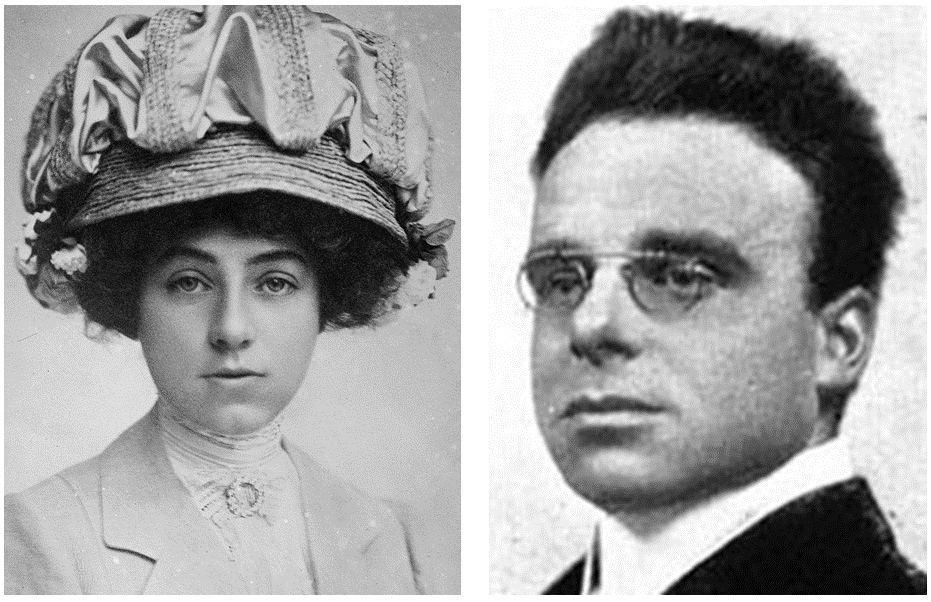How Two Pacifists Came to Support the International Brigades
Is it possible to be a pacifist and support—or even join—a war? If our criterion is consistency, the answer is clearly no. Yet consistency, for good or for bad, is not a universal human trait.
Sometimes the only answer to real-world challenges is to contradict ourselves. This is the situation many pacifist anti-fascists found themselves in during the 1930s and ‘40s. While historians have rightly argued that the interwar period saw the rise of a “mystique of violence,” this was countered by a powerful peace movement born in response to the First World War. Starting in the 1920s, however, the threat of fascism confronted pacifists with a dilemma. Did fascist aggressions and expansion warrant their abandoning their principles?
In December 1936, half a year into the Spanish war, two prominent pacifists reflected on this question in a fascinating exchange of letters that has been preserved in the archive. Henry Noel Brailsford was a renowned left-wing journalist in Britain, cofounder of the Men’s League for Women’s Suffrage and a one-time member of both the Independent Labour Party and the Labour Party. A fierce critic of Mussolini and Hitler, but also of Stalin, Brailsford reconsidered is pacifist idealism after the coup d’état against Spain’s Second Republic. Writing to his friend, the American publisher Dorothy Whitney Elmhirst—a prominent pacifist and feminist activist—he announced that he was going to join the International Brigades in Spain. Elmhirst, though shocked, responded with a show of support and affection. Although neither abandoned their pacifist convictions, they temporarily suspended them in the face of fascism. The dream of a peaceful world could only be achieved by first defeating fascism militarily.
In the end, Brailsford was not able to join the Brigades. At 63, he was too old to meet the requirements. Still, from the beginning of 1937 he organized dozens of meetings and conferences in favor of the Spanish Republic. In fact, he played a central role in the recruitment of British IB volunteers among members of the Labour Party and Trades Union Congress.
[MAYBE PRINT THE LETTERS IN TWO BOXES?]
[11 December 1936]
Dear Dorothy,
I want to tell you that I am joining the International Brigade in Spain. I shall go about Christmas, after I have given some help in recruiting.
May I beg help from you? I know your pacifist principals. At one time of my life, I came near to holding them as strongly as you do. But can one in this muddle world be sure of any theoretical guide to conduct? As I see it, not to resist in this case would have been ruinous. It could have meant the extinction of political liberty, and also of all freedom of thought in Spain. Church plus army plus grandees is an uglier combination even then genuine Fascism. And if we don’t resist, I think all Europe, save for a little Northern fringe, will be under the dictators, who will do as they please.
Two considerations chiefly move me; 1) that we in this country must be shaken out of our security and move up to action. In short, I think the Brigade, if we support it wholeheartedly, can save our souls as well as the soil of Spain; 2) If the Republic goes down, the whole Spanish Left will be massacre. This is happening everywhere now. I have plenty of evidence of this from friends whose word and judgement I trust, but you will find this confirmation in Wednesday’s Times (column 1, Foreign news page), where a strongly pro-Franco writer describes the “ruthless extermination” of the whole Left, Traditionalist, and moderate liberals as well as socialist and communist.
If Franco conquers Madrid and the East, we must expect a massacre that will literally leave no liberal element alive, Spain will be crushed into darkness for years, till a new government grows up.
Can any pacifist principle answer the argument that by fighting we may save hundreds of thousands from massacre, to say nothing of Spanish happiness and our security?
So, will you forgive me if I ask bluntly for money for the International Brigade? It would be used chiefly to send out recruits, some are waiting, all trained men, and I am hoping to get more.
I will gladly give you more information if that would help you to decide. I would even reach down to Darington for a day. Our recruits are all volunteers, idealist, no pay or just a peseta or two, one cigar, etc. There’s no more even to send home, wounded men, of where there are already may.
Yours ever,
N. H. Brailsford
[December 21, 1936]
Dear Noel,
I hardly know what to say to you, because, as you know, I can hardly bear the thought of your going to Spain. My heart is torn between desire to restrain you and the urge to encourage nobility and greatness when one sees it in an action of this kind. What can I do! I think I must ask you to take a gift as a kind of personal testimonial to yourself and to ask you to spend it in any way that you think best. I can’t quite bring myself to contribute to a fighting brigade direct, but if you make the contribution for me perhaps that is a way to save my conscience. It sounds terribly dishonest, doesn’t it? But you will understand how torn and confused and miserable I feel about it all. The purity and integrity of your motive is about the finest thing I see at this moment.
Bless you both,
Yours, Dorothy
Sources: Letters from Papers of Dorothy Whitney Elmhirst. DWE/G/1/C (Devon Heritage Centre; Archives of the Trades Union Congress). Spanish Rebellion: International Brigade 1937-1942 (Warwick Digital Collection).
Jorge Marco teaches Spanish Politics, History & Society at the University of Bath (UK). His most recent book is Paraísos en el infierno: Drogas y Guerra Civil española (Comares, 2021).













